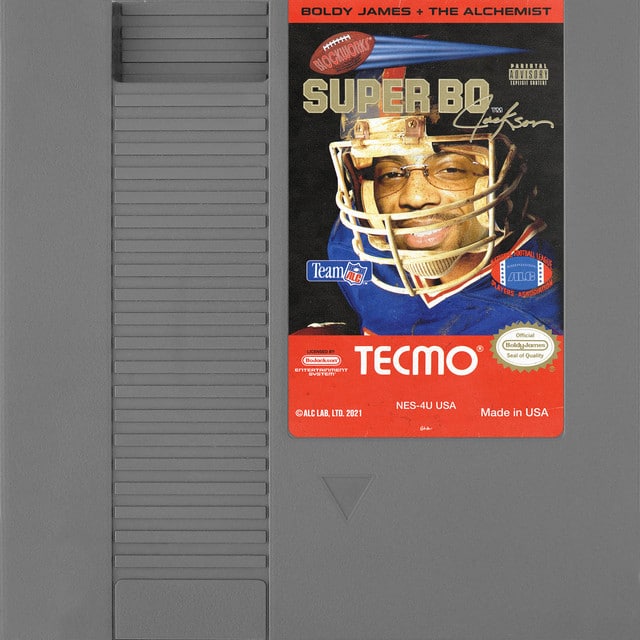Released: 2024
“Cecil Fielder” by Boldy James, featuring Harry Fraud and Tee Grizzley, offers an introspective dive into the world of drug dealing and the consequences tied to the lifestyle. It’s an exploration of street authenticity, a hard-hitting narrative about hustling in the underground economy, with allusions to sports figures and the perilous pursuit of respect and success in Detroit’s gritty landscape.
Right from the start, Boldy sets the stage by identifying his track as “authentic D-Boy shit,” implying that what follows will be genuine tales from a real drug dealer. This isn’t mere bragging—it’s a portrayal of street survival and the hustle that goes hand in hand with the game. The mention of “Boldy, that’s how you coming, my nigga?” underscores a form of greeting and affirmation within street culture, suggesting the realness and credibility that Boldy carries in the game.
In the opening verse, Boldy talks about a “lame” taking the fall, an indication that in the world he operates in, sacrifices are often made for financial gain. He also asserts the repercussions of name-dropping him for clout—without facing the wrath of his associates. This is about street respect and the rules that govern those interactions. “Bird-bathing” is slang for stashing money securely, usually derived from drug transactions, illustrating how entrenched the lifestyle is in Boldy’s day-to-day life.

The verse goes on to depict Boldy’s work ethic and relentless pursuit of his trade, marked by working nonstop, barely changing clothes. This shows the tireless and often gritty dedication required in the life he describes. Mentioning “blue moon” suggests a rare occasion where a significant transaction happens, and “280 ball” could refer to dealing with high volumes of product. These instances highlight moments of opportunity amid constant hustle.
There’s a powerful commentary on education versus street wisdom when Boldy mentions dropping out in eighth grade but now dealing with ‘cakes,’ a slang for cocaine. It’s an assertion that conventional education didn’t pave his way; rather, he found success in understanding the streets’ unwritten laws. The “pool sharking” and “Casey Hall” references hint at gambling and hustling prowess, showcasing a form of intellect distinct from academic smarts.
The narrative paints a vivid picture of the underground world where robbing “Peter to pay Paul” signifies the constant juggling act and cash flow challenges faced by those involved in illegal trade. It’s a metaphor for financial manipulation and survival tactics. Boldy’s sports references, particularly in “Spartans play DePaul,” suggest strategies, defense, and maybe even rivalries present in his lifestyle, painting a vivid competitive edge.
Tee Grizzley enters the conversation through a featured verse, matching the intensity of Boldy’s narrative. He contributes his experience with law enforcement’s pressures and the innate suspicion of those around him, echoing Boldy’s themes of survival and evasion. The mention of “Dracos,” slang for semi-automatic weapons, reflects a means of protection, yet simultaneously illustrates the ever-present danger they live under.
A crucial part of the story is when Tee talks about receiving a stack (money) from his pops on his birthday that “smelled like crack,” metaphorically suggesting how intertwined his upbringing was with the drug culture. It’s a cycle, implying how one’s environment can shape dreams and aspirations, further portrayed in dreams of “scorpion stamps,” likely symbolizing aspirations tied to wealth through illicit means before music offered a legitimate path.
Reiterating the refrain, “These bitches too possessive,” acts as a critique of deceit and manipulation prevalent not only in relationships but in the transactional nature of his lifestyle. It’s about loyalty and betrayal, the caution needed to navigate through such a volatile world, mirrored by the repetitive hustler’s cadence of constantly cutting out liabilities from one’s circle, striving for stability and security.
In conclusion, “Cecil Fielder” draws on a variety of cultural references, merging them with street vernacular to create a gritty, realistic portrayal of the artist’s world. Boldy James crafts a narrative filled with both stark realities and raw introspection. It’s not just a song, but an exploration of Detroit’s complex social tapestry through the lens of a hustler who made it through the odds. Historical references to baseball player Cecil Fielder add a unique layer, portraying Boldy’s intent to play in a league far above his beginnings.








